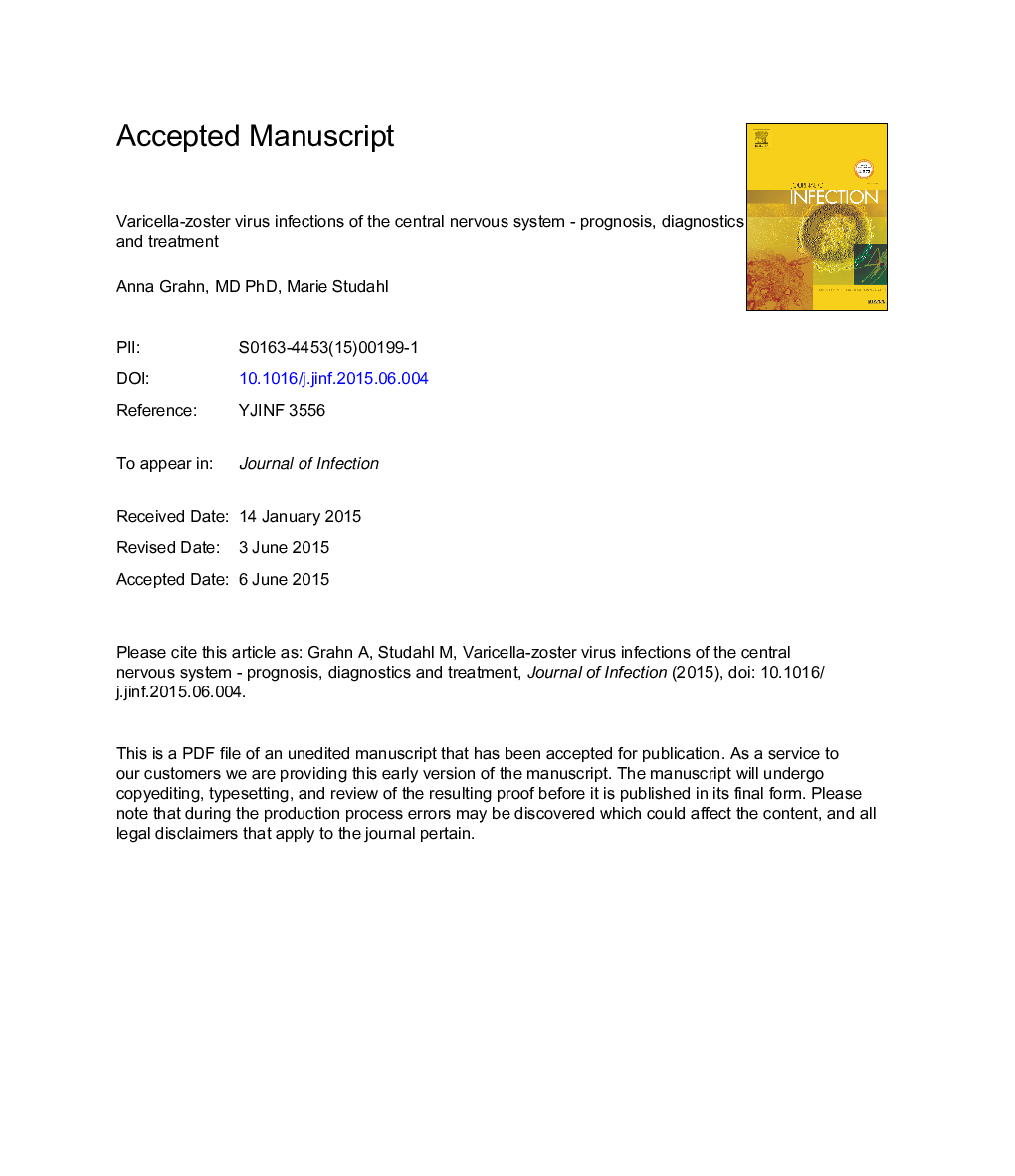| Article ID | Journal | Published Year | Pages | File Type |
|---|---|---|---|---|
| 6122713 | Journal of Infection | 2015 | 44 Pages |
Abstract
Both varicella and herpes zoster that are caused by varicella-zoster virus (VZV), are associated with central nervous system disease. Since the introduction of polymerase chain reaction, the opportunity to detect the virus in cerebrospinal fluid (CSF) has improved dramatically. As a result VZV is diagnosed as one of the most common viruses causing CNS disease and it has become evident that this disease includes a wide spectrum of different CNS manifestations. The most evaluated CNS manifestations are encephalitis which is associated with both varicella and herpes zoster and, cerebellitis which occurs predominantly in children with varicella. Other manifestations have been less widely investigated. The incidence of cerebrovascular disease caused by VZV has been only scarcely studied and, in addition, some data indicate that vasculitis might also be involved in other VZV CNS manifestations such as herpes zoster-associated encephalitis. For this reason, VZV CNS infection must be suspected in several CNS syndromes and diagnostics should be based on CSF analysis for detection of VZV DNA by PCR and/or intrathecal antibody production. The prognosis is reported as favourable in children but few follow-up studies are available. Moreover, in adults, the prognosis is reported to be good in overall terms, but later studies indicate more serious neurological sequelae including cognition. Despite considerable mortality and morbidity, so far also in vaccinating countries, few treatment studies are available. Further treatment studies including assessments of neurological and cognitive sequelae, are warranted.
Keywords
Related Topics
Life Sciences
Immunology and Microbiology
Applied Microbiology and Biotechnology
Authors
Anna Grahn, Marie Studahl,
